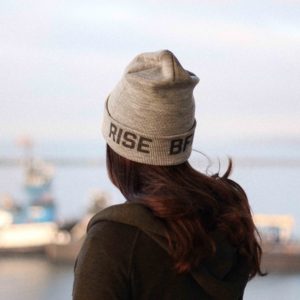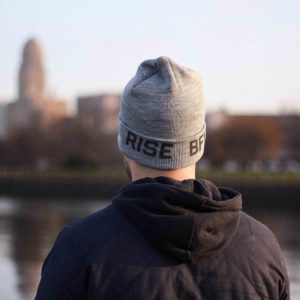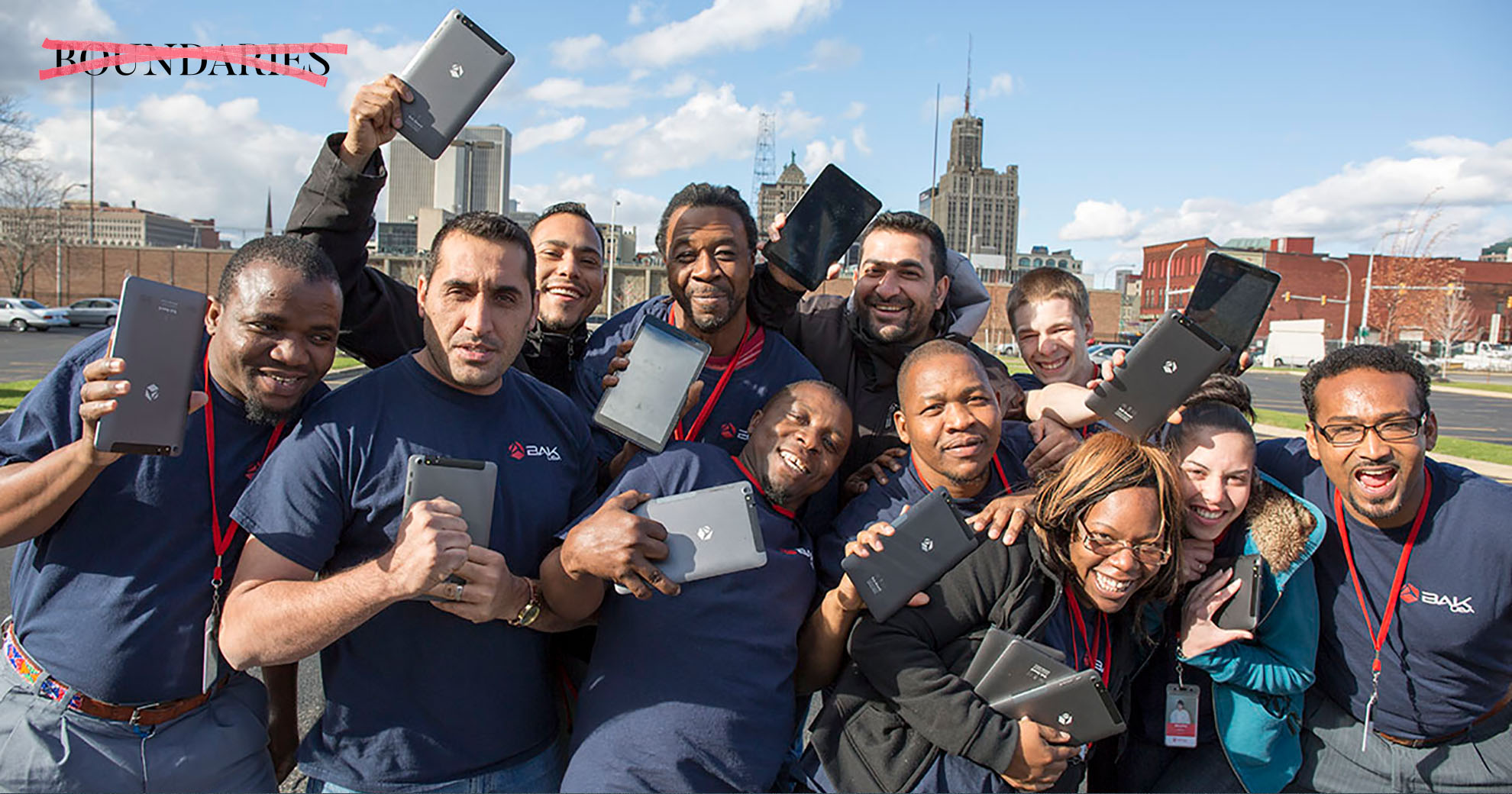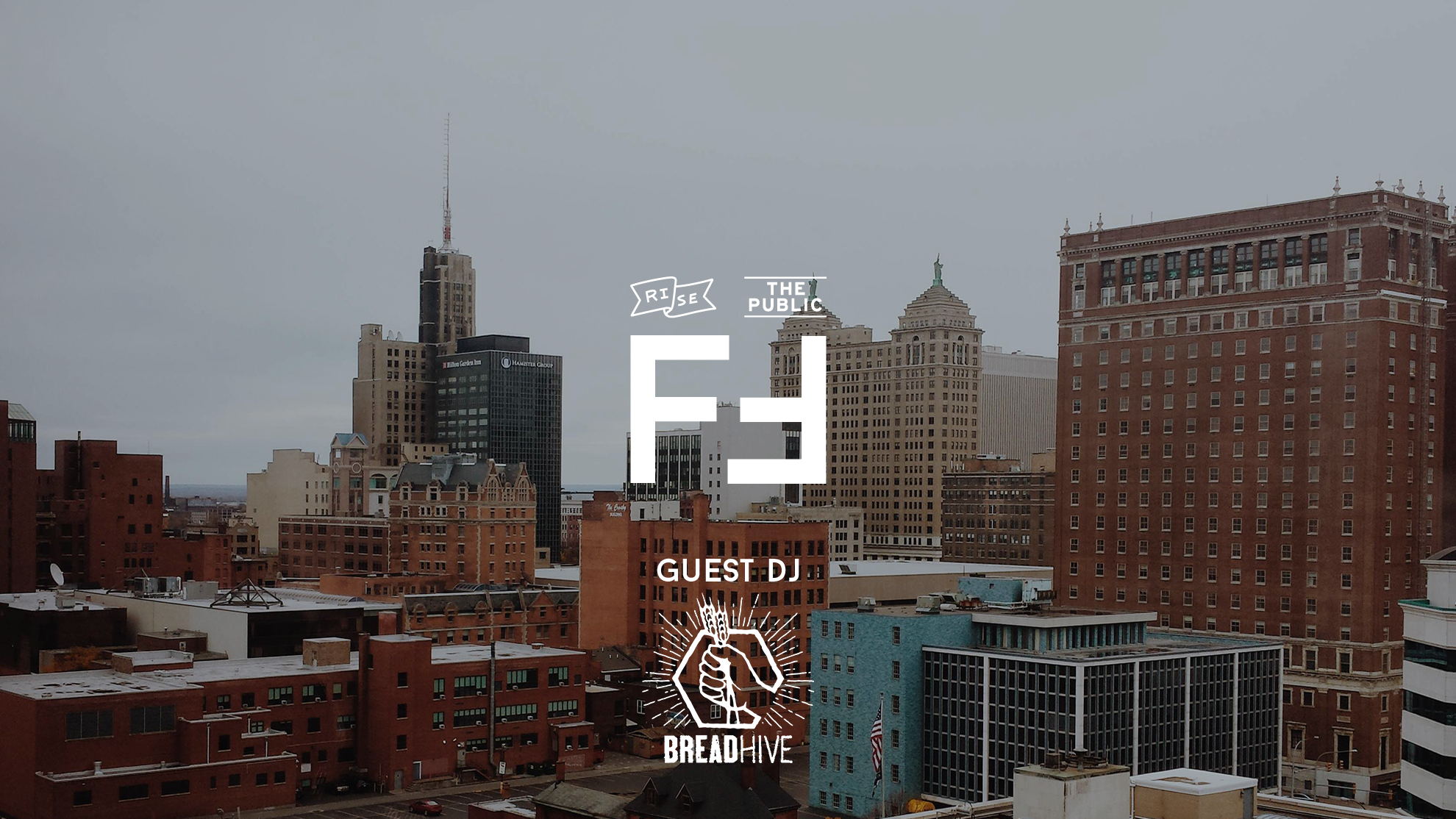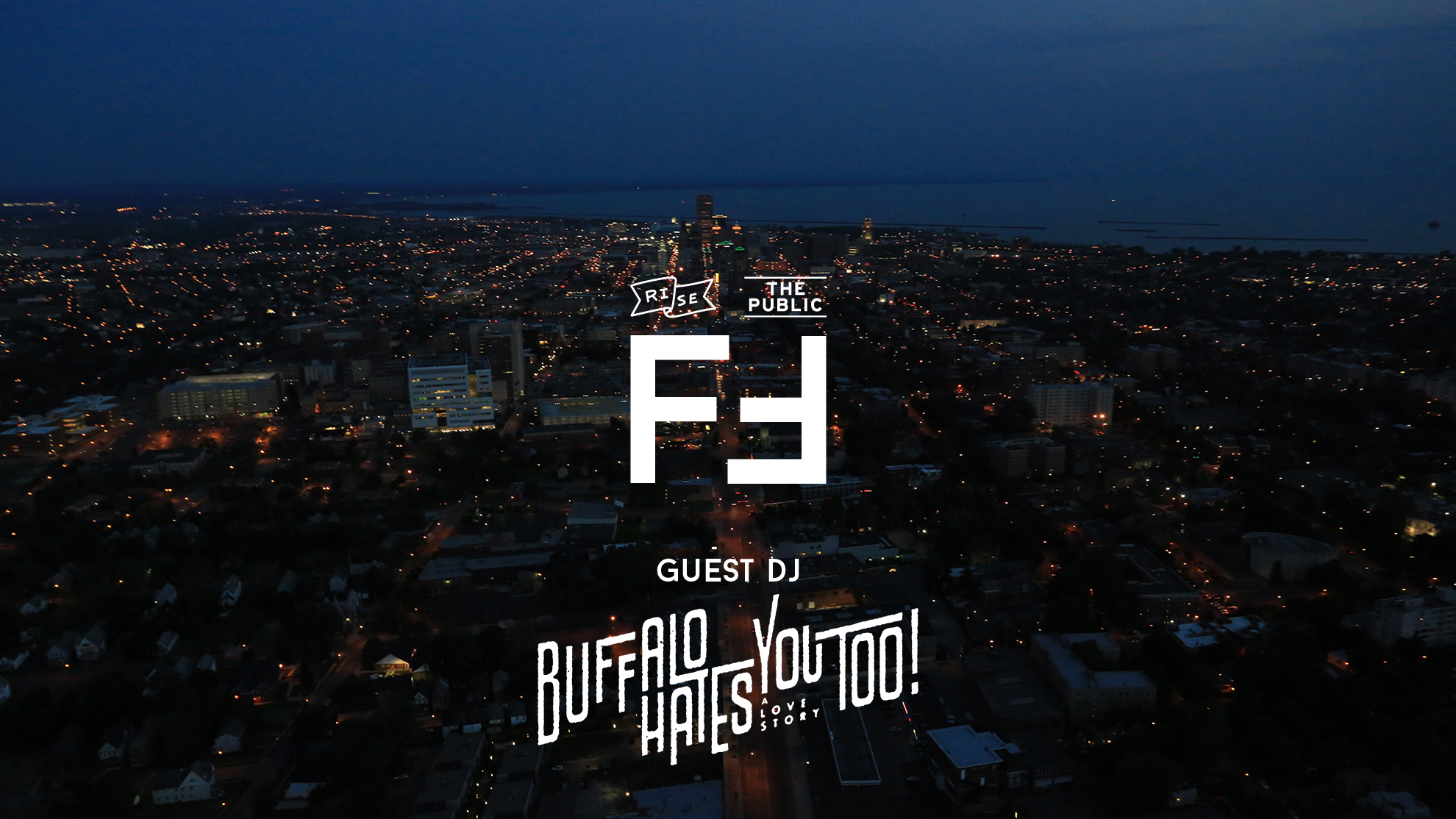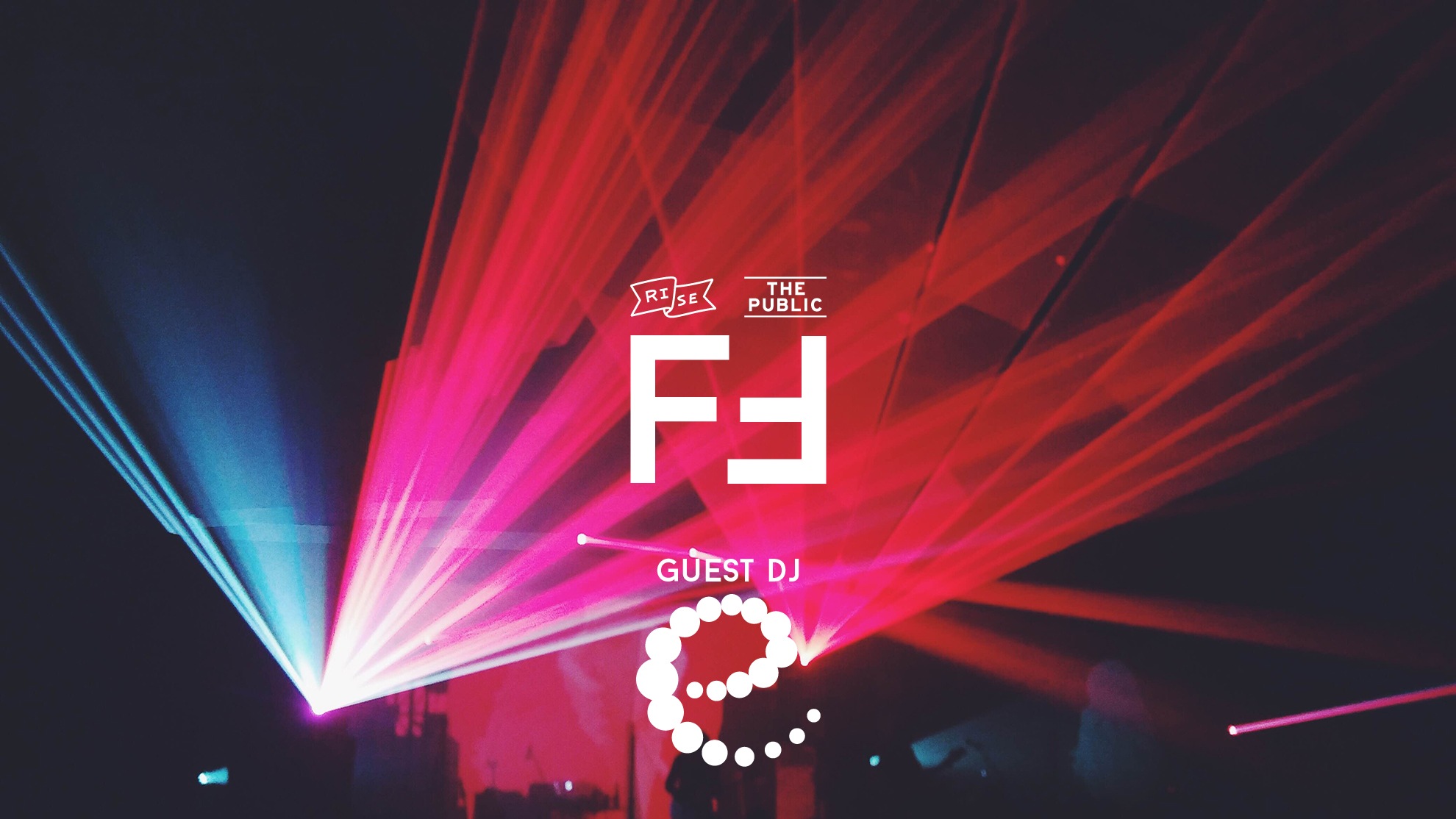By James A. Colombo III
Idris Ismael lay in the dirt, his arm and ribs fractured, his face bruised and swollen, his left eye bleeding. Having narrowly escaped a near-fatal beating from Somali police for playing a simple game of soccer, he had been running for his life for 20 consecutive hours. The last words he heard were his father’s pleading with him to escape, to save himself.
Eight years later, Idris recounts his harrowing journey to the Ethiopian refugee camp that would eventually relocate him to Buffalo, New York. Despite a disfigurement to his left eye as a result of his brutal attack, the 30-year-old Somalian refugee is disarming, amicable, and engaging. As Idris travels in time to tell his story, he covers his face with his hands. He opens his palms. He looks to the heavens. He smiles in response to his own teary-eyed recollections.
“When I was living as a refugee, I don’t have any moral or any hope,” Idris says in a rich Somali accent. “But when I get to the United States, I get happy.”
After a three-year waiting period involving U.S. Citizenship and Immigration Services, Idris traveled from Ethiopia to Frankfurt, Germany, where he befriended three American travelers. “They asked me where I was going, and I said, ‘I am going to the United States!’ ’Oh, congratulations!’ they said to me. ‘I am with you. We are together going to the United States.’” After a long voyage, several mesmerizing interactions with an in-flight touchscreen TV, and one final departure from Newark to Western New York, Idris was finally settled in Buffalo.
“I came here with my wife and my daughter,” he says. “I have been in the United States of America since March 2016.”
Upon his arrival, Idris began to navigate the immigrant avenues of Buffalo’s Black Rock neighborhood in search of employment. After several conversations with helpful neighbors, Idris learned that Bak USA, a computer manufacturing company in downtown Buffalo, was hiring operators to build computers at its facility on the city’s East Side. Following an extensive interview process with over 100 applicants, Bak USA hired Idris as one of its 11 new operators.
“I got my first job in America at Bak USA,” Idris says, smiling proudly. “I’m very happy.”
Idris’s story, while similar to thousands of other immigrant stories from all around the world, personifies the spirit of Buffalo, New York.
“Buffalo is known as the ‘City of Good Neighbors’ for a reason,” says Eva Bak, chief people officer at Bak USA. “Our commitment to social inclusion is an extension of our city—of our country—and it is a genuine part of who we are. Our goal is to embody the pursuit of happiness that defined America, which is an ideal we all cherish but so often take for granted.”
“We showed him how to build the Bak Board. He did amazing. I know he’s only been in the U.S. for a couple of months, but he caught on very quickly.”
According to the UN Refugee Agency, “33,972 people a day [are] forced to flee their homes because of conflict and persecution.”1 Not unlike America’s forefathers rebelling against British tyranny, the first American pilgrims escaping religious persecution from Europe, or our own ancestors searching for new hope in a new land, today’s immigrants are entering the United States as a means of survival.
“When you think about the very birth of our nation as we know it,” says Eva Bak, “It was built on the back of immigrants, for better or worse. To deprive today’s refugees of a future would be denying them the promise made by American history. When Bak USA opened in January 2015, we made it clear that we’d be committed to creating new jobs, especially for the largely marginalized members of our local community. Buffalo has given us every opportunity to do exactly that.”
Bak USA’s team of operators stands at 24 people, many of whom have immigrated to Buffalo from various locations all over the world (Uganda, Afghanistan, and Cuba to name a few). To ease the transition for new hires, Bak USA pairs them up with “buddies,” or veteran operators who assume mentor roles. The buddy system helps new employees adjust to their environment while also developing their skill set.
“I’m his teacher!” exclaims Ashley Banks of her buddy, Idris. Born and raised in the city of Buffalo, Ashley beams as she describes Idris’s progress. “We showed him how to build the Bak Board. He did amazing. I know he’s only been in the U.S. for a couple of months, but he caught on very quickly. He is a very fast learner. He’s very excited to be here.”
At Bak USA, operators build tablets from start to finish in a fifth floor cleanroom (pollutant-free manufacturing environment) overlooking the Buffalo cityscape.
“Our assembly process requires an extraordinary mastery of refined skills,” says Christian Bak, chief technology officer & co-founder at Bak USA. “It also fosters a sense of ownership and pride that results in unsurpassed quality. We’re incredibly proud to share such meaningful opportunities with so many different people in our city and region.”
As Bak USA continues to make strides in the world of computer manufacturing, its most rewarding achievements, perhaps, are those which embrace, educate, and employ so many unique individuals who have chosen Buffalo to be their home. With such a vastly different perspective on what it means to succeed in high-tech manufacturing, Bak USA represents the resilience of the human spirit, the resurgence of our great city, and the beauty of the American dream.
1“Figures at a Glance.” UNHCR News. N.p., n.d. Web. 19 Sept. 2016.
Until December 2, 2016, Rise Collaborative is selling RISE BFLO winter hats. One for you, and one for a refugee in need.
In a partnership with Equality Knowledge and Light and the International Institute of Buffalo, we’re orchestrating a sale where one hat purchased equals an additional hat donated to a refugee in need. Both you and the recipients of your donation can stay warm this winter in style, but together, we’re also saying that refugees are welcome here. They are an integral part of Buffalo’s rebirth. Learn more and purchase here.
